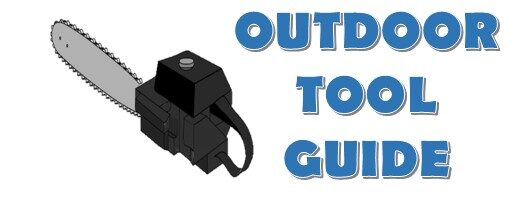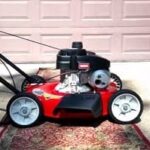As an Amazon Associate, this site earns commissions from qualifying purchases. For more information click here.
Lawn mowing is a regular part of yard maintenance, but what happens when it rains? Many homeowners wonder whether their lawn mower will function properly after rain and whether it’s safe to use on wet grass. This article explores the potential risks and solutions when using a lawn mower after rainfall.
Understanding the Risks
Using a lawn mower after rain poses several risks, both to the machine and the user:
- Engine and Electrical Damage
- If a lawn mower gets wet, water can enter the engine, fuel system, or electrical components, leading to malfunctions.
- Electric lawn mowers are especially vulnerable, as water exposure can short-circuit the motor or damage wiring.
- Gas-powered mowers can experience issues if water seeps into the air filter or fuel tank, potentially causing difficulty in starting or engine stalling.
- Clogging and Reduced Performance
- Wet grass clumps together, leading to clogging in the mower deck and blades.
- A clogged mower can result in uneven cutting, additional strain on the motor, and frequent stops to clean the undercarriage.
- Slipping and Safety Hazards
- Wet grass and muddy ground increase the risk of slipping, making it dangerous for the operator.
- Electric mowers, in particular, pose a shock hazard if operated in wet conditions.
Will the Mower Start After Rain?
If your lawn mower has been exposed to rain, whether it starts depends on the extent of water exposure:
- Electric Mowers:
- Unplug and let the mower dry completely before attempting to start it.
- Check the power cord and battery connections for moisture or damage.
- Gas-Powered Mowers:
- Inspect the air filter, fuel system, and spark plug.
- If water has entered the carburetor or fuel tank, draining and refilling with fresh fuel may be necessary.
- Allow the mower to dry in a well-ventilated area before attempting to start it.
How to Safely Use a Lawn Mower After Rain
If you must mow after rainfall, follow these precautions:
- Check for Excess Moisture
- Wipe down all wet parts of the mower.
- Ensure the grass is not overly saturated; slightly damp grass is more manageable than soaking wet grass.
- Sharpen the Blades
- Dull blades can tear wet grass instead of cutting it cleanly, leading to an unhealthy lawn appearance.
- Adjust the Mower Height
- Raise the mower height slightly to prevent excessive clogging and improve cutting efficiency.
- Clean the Mower Regularly
- After mowing wet grass, clean the mower deck thoroughly to remove clumped grass and debris.
Conclusion
A lawn mower can still work after rain, but extra caution is necessary to prevent damage and ensure safe operation. If your mower has been exposed to rain, allow it to dry before use, inspect key components, and be mindful of safety hazards when mowing wet grass. While it’s best to wait until the grass dries, following these tips will help you maintain your mower’s performance and extend its lifespan.

I love the outdoors and all the tools for maintaining gardens, yards and lawns. The only thing I am more passionate about is sharing what I know about garden and outdoor equipment.


